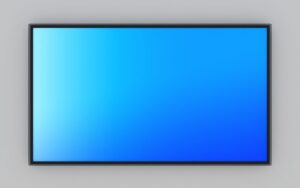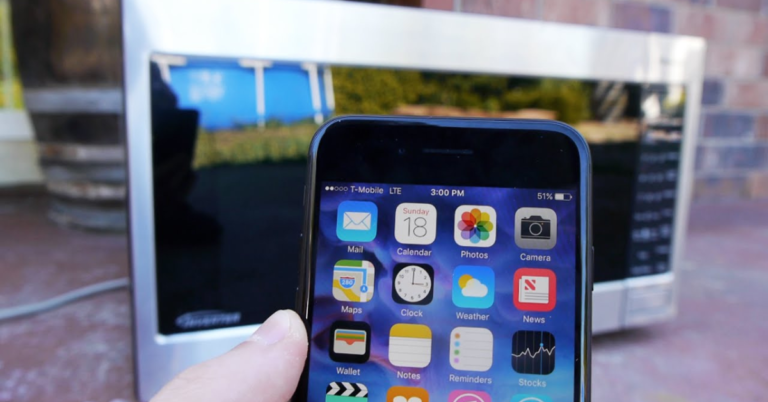Are TV Quotes Copyrighted? (All You Need to Know)
Many people love television shows and movies, and they frequently quote their favorite lines from these shows.
It may seem like no big deal to quote some lines from your favorite TV show, but that may not be the case.
It’s important to know whether you can or cannot use the lines from these shows if you plan on using them in certain ways, so let’s look at the legality of using these quotes in your work and other areas of life. So the question is, are TV quotes copyrighted?
Just because you can write something down, does that mean you have the right to? That’s the question when people use quotes from movies and TV shows in their work.
That’s where quoting comes in, and this article goes over everything you need to know about using a TV quote.
While you might think that quoting popular lines from your favorite movies and television shows would fall under fair use, you’d be wrong.
Unless you have permission from a copyright holder and have proof of said permission, such as a signed contract, you are taking a huge risk.
In fact, quoting anything from your favorite movies or TV shows could cost you big time.
How do I Find Out if a Quote is Copyrighted?
The Internet provides a wealth of resources to help you determine whether or not a quote is copyrighted.
Start by doing an online search to find out if the quote is copyrighted and look for websites with information about fair use, which allows you to use parts of someone else’s work without asking permission or paying a fee.
Note that most quotes from television shows and movies fall under fair use unless they are shorter than about ten words.
If you have any doubts about whether or not it’s okay to use a particular quote, it’s always best to do your research well, or to be on a much safer side, just ask for permission first.
You can contact the quote’s author directly through his or her website; many authors post their email addresses on their sites so fans can contact them directly.
If you can’t find an email address on the author’s site, try searching Google using his name plus email as your search term. This will often turn up his email address.
Social media can also be an easy platform to get in touch with the quote’s author. Some people even leave their contact numbers in their social media bio.
Once you’ve done some research, if you’re still unsure whether it’s okay to use a quote, there are plenty of websites available where you can request permission to use a quote in exchange for money, such as Quote Investigator.
Can I use TV quotes in my Artwork?
To quote a popular television show, the answer is yes. You can use lines from your favorite shows in your artwork, but there are some rules to follow for copyright purposes.
In short, you can use quotes from movies and TV shows in your work if you ask permission and give the necessary credit to those who created them.
The creators of these works own their copyrights; if they don’t want their material used without permission, they have the right to deny you that permission.
That said, it’s not always easy to track down rights holders, so it’s best not to assume that using a line or two will be okay without asking first.
If you’re unsure whether you should use an existing quote, ask yourself how much time and effort it would take to track down and get written permission from whoever owns that copyright. If it seems like too much trouble, it probably is.
Suppose someone else asks about using your artwork with quotes from another source, online or offline. In that case, contacting an attorney specializing in intellectual property law is always advisable before granting such permission.
It’s also important to remember that even though you may be allowed to use quotes from a movie or TV show in your art, others may not.
Even if you have permission to use quotes from a particular show, try not to copy anything verbatim; paraphrase instead.
Can you use TV Show Quotes on Products?
Once a character says it, is it fair game for all promotional purposes for eternity? Hardly.
The copyright on a television show protects only its specific expression, not what you or I might call it when quoting a line of dialogue.
So while May the Force be with you may be part of Star Wars canon, Disney and Lucasfilm can’t stop you from using those words to promote your business or selling t-shirts that say them.
On top of that, even if a quote does belong to someone else, say, Shakespeare, it doesn’t mean they can sue anyone who uses it without permission.
There are few legal ramifications as long as you aren’t trying to profit off their intellectual property.
For instance, you could use lines from Romeo and Juliet in a video about love without fear of reprisal, as long as you don’t sell copies.
However, things get trickier once you start making money off something that belongs to someone else.
How Do I Avoid Copyright Infringement on Yourself or your Product?
If you’re looking at creating a product or something more concrete, then don’t try using a TV quote without the necessary permission, or go ahead.
These guidelines can help you avoid future copyright infringement.
- Don’t use copyrighted material in a way that suggests you have an affiliation with, or endorsement by, whoever owns it.
- Don’t create merchandise based on copyrighted material without getting permission first.
- Don’t make money from quotes from movies and TV shows unless you either pay licensing fees or buy rights to distribute them yourself.
- Do ask before using someone else’s copyrighted material in your work. Chances are they’ll let you do it, so long as you’re clear about where credit should go.
A simple email can save you lots of trouble down the road. Be aware that laws vary by country; these rules apply primarily to U.S.-based creators operating in other countries.
Quote Copyright Checker
Ever watched a movie or read a book and found yourself inspired to use one of your favorite lines in a sentence? You should think twice before you go quoting freely.
Chances are if it was said on television, it is copyrighted material that you cannot use in any way unless you have written permission from someone with authority over copyright law. And even then, certain types of quotes may not be allowed.
Let’s get to find out what you can and cannot quote. The term quotation has been defined as a repetition, word for word or substance, of another person’s statement; it differs from a direct speech in that it does not represent an exact reproduction of an actual conversation.
However, quotations must also differ from indirect speech; otherwise, they would be direct speech themselves. In general usage, quotation refers to words directly spoken by a speaker.
The question is whether these words can be used without being attributed to their source.
Copyright protects literary, musical, dramatic, pantomimes, and choreographic works. It also protects translations of these works.
Copyright does not protect facts, ideas, or systems, although it may protect compilations of such things as databases and computer programs that include them.
When considering whether something is protected under copyright law, you must consider two factors:
- Is it original?
- Does it fall within one of the categories listed above, that’s, literary works, musical works, dramatic works, pantomimes, and choreographic works?
If so, there is a good chance that it is protected under copyright law. When writing about something that falls within those categories, describes where you got your information.
If you do not know who created or wrote something, do some research until you do know and give credit where credit is due.
How to Check if Quote is Copyrighted
It’s easy to search a database to find out if a quote you want to use is protected by copyright, but beware: there are many different databases and different search mechanisms.
You may have to experiment a bit before you find an approach that works for you.
Here are some popular sources that might be of good use as you want to check if a quote is copyrighted or not.
Google Books
Google Books (books published in 1923 or later) has a good interface for searching book text, but it does not contain all books.
WorldCat
Another good resource is WorldCat (books published since 1790). The U.S. Copyright Office also maintains a database of registered copyrights, which can be searched online.
Project Gutenberg
Still another option is Project Gutenberg, which contains thousands of public domain books and quotes.
Wayback Machine Internet Archive
The Internet Archive Wayback Machine (https://archive.org/), which archives websites regularly, can also be used to check whether websites have changed over time and whether certain quotes might no longer be attributed to their original authors.
Media Database
If you’re looking for a quote from an old movie or television show, several online databases will allow you to search by title and/or episode. These include IMDB (Internet Movie Database) and TV Guide.
Google Advanced Book Search
The Google Advanced Book Search allows you to search books by keyword or phrase and author and title.
If you’re searching for a quote from a book, check whether it’s an abridged version of that book. The abridged version may have altered or removed some of your quote’s context.
This resource is intended for informational purposes only and should not be construed as legal advice on any subject matter.
Conclusion
Most quotes you hear on TV are very positive but should not be used recklessly.
To use these quotes, make sure the necessary permission is granted. If you have doubts about using a quote, it’s best to refrain from using it.
The risk of getting sued for copyright infringement can ruin your business and even cost you money in legal fees.
The only way to avoid being sued for copyright infringement is to get written permission from whoever owns the rights to that quote before publishing it online or offline.














